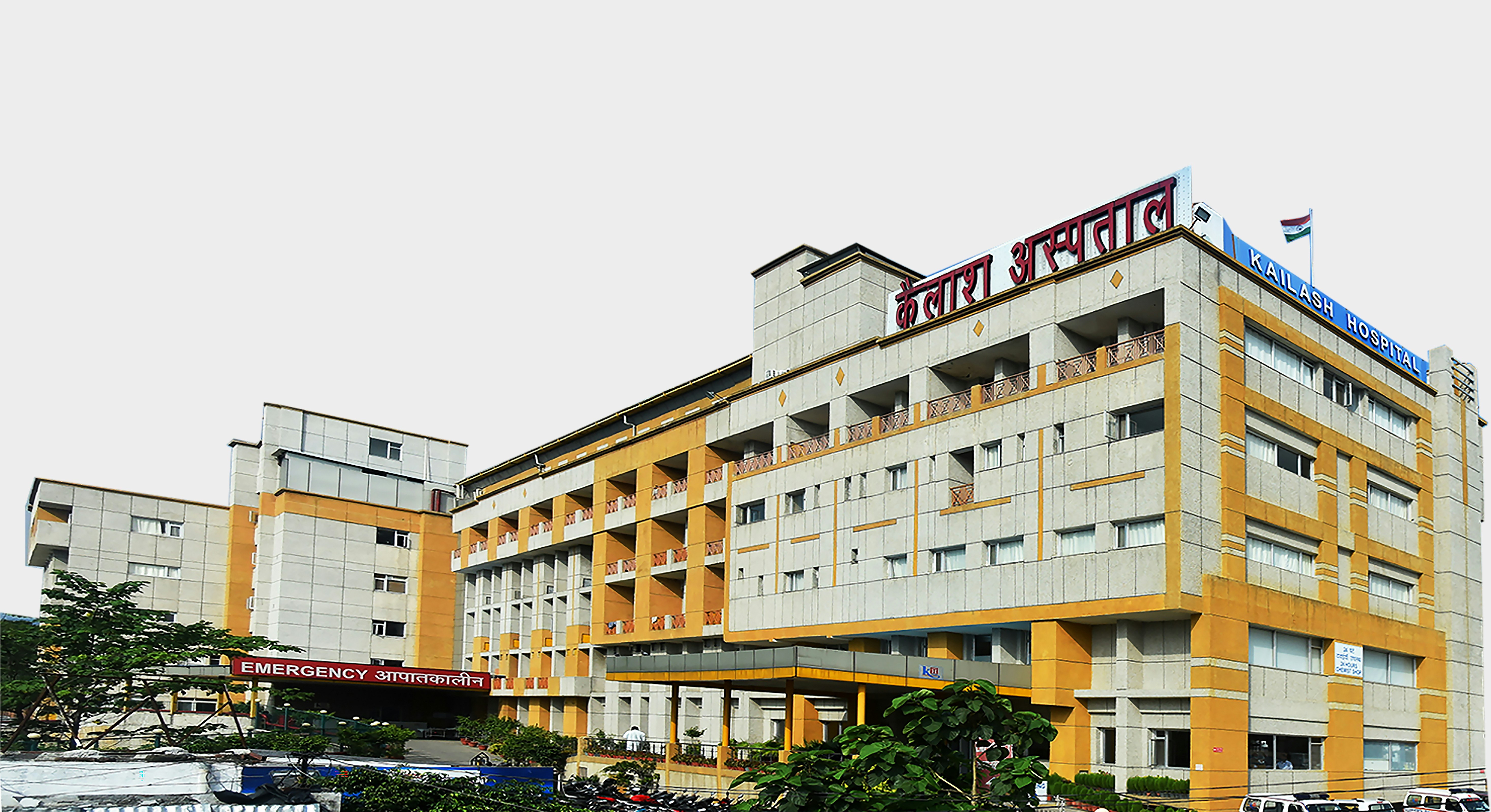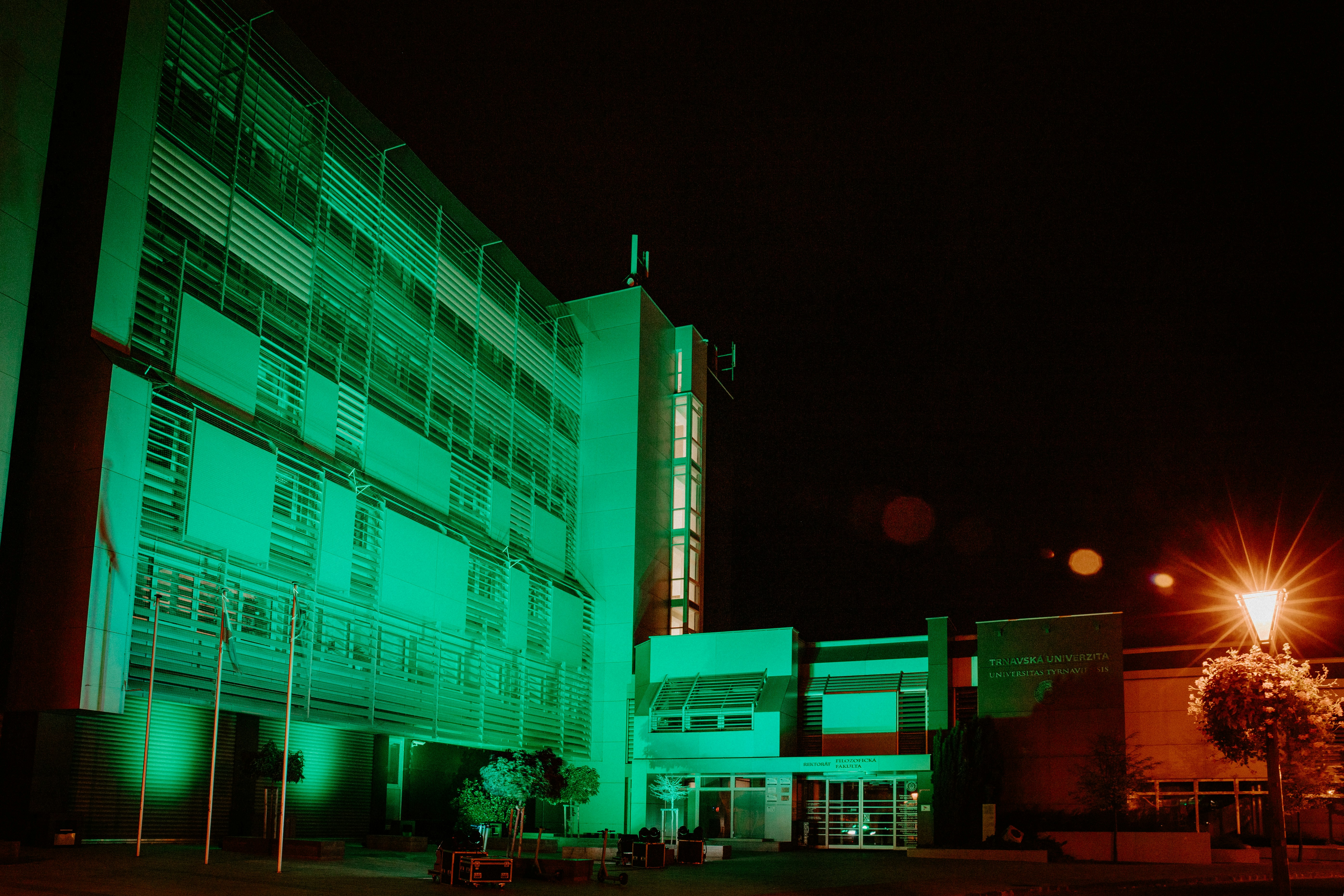Autism Testing Centers In North Carolina: Where To Get Tested

Getting tested for autism can be a life-changing step — whether you're a parent seeking answers for your child, a teen navigating challenges at school, or an adult finally making sense of lifelong differences.
Autism testing isn’t about putting a label on someone — it’s about gaining clarity and understanding. With the right diagnosis, you can access support, therapies, and services that improve communication, independence, and overall quality of life.
Who Should Consider Getting Evaluated?
Autism looks different for everyone. Some people struggle with social situations, sensory sensitivities, or strict routines. Others may have trouble expressing emotions, managing change, or connecting with peers. If you or someone you love shows signs of autism — at any age — seeking an evaluation can be a powerful and empowering first step.
In North Carolina, there are many trusted options for autism testing. From leading children’s hospitals and private psychologists to adult-focused clinics and university-based programs, help is available across the state. In this guide, we’ll help you explore the best testing options based on your age, location, and needs — so you can move forward with clarity and confidence.
Types of Autism Testing Services in North Carolina
Not all autism testing looks the same. The process can vary depending on your age, symptoms, and whether you're seeking a quick screening or a full diagnostic evaluation. Here’s a simple breakdown of the types of autism testing services available in North Carolina:
Diagnostic Evaluations for Children
Early diagnosis can make a big difference. In North Carolina, evaluations for young children are often performed by a team that may include developmental pediatricians, child psychologists, and speech-language therapists. These specialists work together to understand your child’s unique development and behaviors.
What it often includes:
- Parent interviews
- Play-based assessments
- Speech and language evaluations
- Observation of social interactions
These evaluations help parents understand whether their child may be on the autism spectrum — and what kind of early interventions can support learning and communication.
Autism Testing for Teens and Adults
Autism is sometimes missed earlier in life — especially in individuals who mask their traits or were misdiagnosed. In North Carolina, many clinics and private psychologists offer testing for teens and adults, focusing on how autism presents in everyday life, school, work, and relationships.
What it may include:
- Personal and developmental history interviews
- Questionnaires about social and daily habits
- Input from family members, teachers, or caregivers
- Cognitive or psychological assessments
These evaluations are tailored to identify autism signs that may not have been obvious in childhood, providing clarity and support at any age.
Screenings vs. Full Assessments
Not sure where to start? Many providers in North Carolina offer developmental screenings, which are quick tools to help flag early signs of autism — especially helpful for toddlers and young children.
If concerns are identified, a comprehensive assessment is the next step. This in-depth process is conducted by licensed professionals and leads to an official diagnosis when appropriate.
Quick tip:
- Screening = brief check-up
- Comprehensive assessment = full diagnostic evaluation
Who Performs Autism Testing in North Carolina?
Autism evaluations across the state are performed by a variety of professionals and teams, including:
- Developmental pediatricians
- Licensed clinical psychologists
- Neuropsychologists
- Autism centers with multi-disciplinary teams
Each provider uses slightly different tools, but their goal is the same: to understand how an individual processes the world — especially in areas like communication, behavior, and social connection.
Top Places to Get Tested for Autism in North Carolina
Whether you're seeking a diagnosis for your child, teenager, or yourself as an adult, North Carolina has many excellent options — from renowned children's hospitals to adult-focused clinics and affordable university programs.
Below, we’ve grouped some of the top testing providers by age group and service type.
For Children and Teens
1. TEACCH Autism Program – University of North Carolina (UNC), Chapel Hill
What They Offer: TEACCH is one of the most well-known autism programs in the country. They offer full diagnostic evaluations for children of all ages using gold-standard tools like the ADOS-2 and developmental assessments.
Why Parents Choose It: The TEACCH team includes licensed psychologists, speech-language pathologists, and behavior specialists. Families benefit from personalized feedback, parent education, and follow-up services.
Bonus: Regional centers available in Asheville, Charlotte, Fayetteville, and other cities.
Website: teacch.com
2. Duke Center for Autism and Brain Development – Durham
What They Offer: Comprehensive evaluations for children and adolescents using a multidisciplinary team approach. Includes psychological assessments, parent interviews, and developmental screenings.
Why It’s Great: Part of the prestigious Duke University Health System. Evaluations are research-informed and include access to cutting-edge therapies and clinical trials.
Insurance Accepted: Most major insurance plans.
Website: dukecenterforautism.org
3. Carolina Center for ABA and Autism Treatment – Multiple Locations (including Raleigh, Greensboro, Wilmington)
What They Offer: Diagnostic evaluations for children, along with ABA therapy, speech services, and behavioral support.
Why Families Like It: Known for short wait times and a family-friendly atmosphere. Staff specializes in working with young children and making the process less stressful for parents.
Convenience: Multiple locations across North Carolina.
Website: carolinacenterforaba.com
For Adults
4. UNC TEACCH – Adult Autism Services (Chapel Hill & Regional Centers)
What They Offer: Adult autism assessments including structured interviews, self-report tools, and functional behavior evaluations.
Why Adults Choose It: TEACCH is neurodiversity-affirming and sensitive to the needs of late-diagnosed adults, including women and BIPOC individuals. They also offer skills training and social supports after diagnosis.
Website: teacch.com
5. NC Neuropsychiatry Clinics – Charlotte, Raleigh, Chapel Hill
What They Offer: Autism and neurodevelopmental evaluations for teens and adults. Services may include cognitive testing, interviews, and diagnostic impressions from licensed psychiatrists or psychologists.
Why It’s Great: Tailored support for co-occurring conditions like ADHD or anxiety. A good option for adults who’ve struggled without answers.
Insurance Accepted: Most private insurance accepted.
Website: ncneuropsychiatry.com
6. Elon University – Autism Research Lab (Elon, NC)
What They Offer: Screenings and assessments for adults and teens as part of clinical research.
Why It’s Unique: Low-cost or free evaluations may be available if you qualify for research participation. This is an ideal option for students or those without insurance.
Great Fit For: College students or self-reflective adults exploring autism for the first time.
Website: elon.edu
Multidisciplinary Autism Evaluation Centers
7. Novant Health Pediatric Neurodevelopmental Center – Charlotte
What They Offer: Integrated autism evaluations combining developmental pediatrics, psychology, and speech/language assessments.
Who It’s For: Children with suspected autism and complex developmental concerns.
Why Families Choose It: Trusted by pediatricians across the state for its thorough process and follow-up care options.
Website: novanthealth.org
8. Carolina Institute for Developmental Disabilities (CIDD) – UNC Chapel Hill
What They Offer: Full-spectrum autism assessments for all ages, backed by a team of experts in psychology, psychiatry, speech therapy, and more.
Why It’s Valuable: Known for serving individuals with dual diagnoses or complex needs. Offers research-based care and community referrals.
Note: Long wait times, but high-quality services.
Website: cidd.unc.edu
Support Available After Diagnosis
Many of the centers listed above don’t just stop at testing. They can help you understand the results, create a personalized plan, and connect you with resources such as:
- Speech, occupational, or ABA therapy
- School advocacy and IEP/504 planning
- Counseling or support groups for families and adults
- Social skills groups or job training for teens and adults
- Help accessing services through North Carolina Medicaid or private insurance
What to Look for in an Autism Testing Provider
- Experience with your age group (child, teen, or adult)
- A clear explanation of the evaluation process
- Licensed professionals (psychologists, developmental pediatricians, neurologists)
- Follow-up services after diagnosis
- Accepts your insurance or offers affordable options
City-by-City Guide to Autism Testing Locations in North Carolina
City | Clinic/Center Name | Who They Test | Type of Services | Insurance / Payment | Website |
Charlotte | Autism Services of Mecklenburg County | Children, Teens, Adults | Diagnosis, ABA, Support Services | Accepts Medicaid, Private Insurance | |
Carolina Center for ABA and Autism Treatment | Children | ABA, Autism Testing, Developmental Services | Accepts most insurance plans | ||
Atrium Health Levine Children’s | Children | Developmental Evaluation | Insurance accepted | ||
Raleigh | UNC TEACCH – Raleigh | Children, Teens, Adults | Diagnosis, Support, Counseling | Insurance, Medicaid | |
Duke Center for Autism | Children, Teens | Diagnostic, Research-Based | Insurance + Research Funded | ||
Durham | Duke Child Development & Behavioral Health | Children | Autism Evaluations | Insurance accepted | |
Chapel Hill | UNC Hospitals Autism Diagnostic Clinic | All ages | Comprehensive Autism Assessment | Insurance accepted | |
Greensboro | ABC of NC | Children, Teens | Diagnosis, ABA, Support | Insurance + Medicaid | |
Cone Health Pediatrics | Children | Autism Evaluation | Insurance accepted | ||
Winston-Salem | Brenner Children’s Hospital | Children | Evaluation, Referrals | Insurance accepted | |
Fayetteville | Cape Fear Valley Developmental Pediatrics | Children | Pediatric Autism Evaluation | Medicaid, insurance | |
Asheville | Mission Children’s – Olson Huff Center | Children | Diagnosis, Therapy, Parent Training | Insurance accepted | |
ABC of NC – Asheville Office | Children, Teens | Diagnosis, ABA | Insurance + Medicaid | ||
Greenville | ECU Health Developmental Pediatrics | Children | Screening, Testing, Referrals | Insurance accepted | |
Wilmington | Coastal Horizons Center | Children, Teens | Behavioral Health, Referrals | Medicaid, insurance | |
Bright Beginnings Pediatric Services | Children | Autism Evaluation | Insurance accepted | ||
High Point | Family Service of the Piedmont | Children, Teens | Evaluations, Behavioral Support | Medicaid, sliding scale | |
Concord | Daymark Recovery Services – Kannapolis | All Ages | Mental Health, Autism Testing | Medicaid, insurance | |
Cary | Thrive Autism Services | Children | ABA, Diagnostic Testing | Insurance accepted | |
Hickory | Cognitive Connections | Children, Teens | Testing, ABA, Training | Insurance accepted | |
Gastonia | Autism 360 | Children | ABA, Autism Testing, School Support | Most insurances accepted | |
Mooresville | MindPath Care Centers | Children, Teens | Mental Health, Referrals | Insurance, private pay | |
Rocky Mount | Easterseals UCP – Rocky Mount | All ages | Autism Screening, Behavioral Health | Medicaid, insurance | |
Jacksonville | Onslow Memorial Hospital – Pediatric Therapy | Children | Early Intervention, Testing | Insurance accepted | |
New Bern | Monarch Behavioral Health | Children, Teens | Evaluation, ABA, Counseling | Medicaid, private insurance | |
Burlington | Carolina Therapeutics | Children | Developmental Screening, Referrals | Accepts insurance | |
Kannapolis | Therapeutic Approach | Children | ABA, Testing, School Consults | Insurance accepted | |
Morganton | Broughton Hospital – Developmental Services | Teens, Adults | Psychological & Autism Testing | State-funded, insurance | |
Elizabeth City | Integrated Family Services | All ages | Developmental and Behavioral Health | Medicaid, insurance |
Additional Notes
- Age Matters: Some centers specialize in early childhood while others also serve adults. Always ask!
- Insurance Check: Call ahead to confirm coverage or ask about payment plans and sliding scale options.
- Referral Needed?: Certain clinics require a referral from your primary care provider, especially when using Medicaid.
- Wait Times: Major hospital systems or university programs (like UNC or Duke) may have longer waitlists — consider exploring multiple locations.
Low-Cost and Free Autism Testing Resources in North Carolina
Getting tested for autism can come with a high price tag — especially if you don’t have insurance. But in North Carolina, there are several trusted options that offer affordable or even free evaluations, particularly for children and families with financial need. Whether you live in a major city or a rural community, help is available.
State-Funded Programs
North Carolina Early Intervention (NC Infant-Toddler Program) provides evaluations and support for children under age 3 who show developmental delays or concerns — including signs of autism. Services are often provided at no cost if your child qualifies.
- NC Early Intervention Website: beearly.nc.gov
For older children and teens, local public school systems are required to offer free educational evaluations under the Individuals with Disabilities Education Act (IDEA), which may include autism assessments.
- Contact your local school district’s Exceptional Children’s Program for more information.
University-Based Autism Clinics
Several North Carolina universities offer reduced-cost autism evaluations through psychology or education departments. These programs are often staffed by professionals and supervised graduate students.
- UNC TEACCH Autism Program (Chapel Hill + Regional Centers)
Offers comprehensive evaluations across the lifespan, often with reduced fees.
Website: teacch.com - Duke Center for Autism and Brain Development (Durham)
Offers clinical research opportunities and services — sometimes free if part of a study.
Website: autismcenter.duke.edu - East Carolina University (ECU Psychological Services Center – Greenville)
Offers affordable psychological assessments including autism evaluations.
Website: psychology.ecu.edu
Nonprofits and Community Resources
Several North Carolina nonprofits help families connect with affordable autism services, including grants, referrals, or insurance navigation:
- Autism Society of North Carolina
Offers family guidance, referrals to diagnostic providers, and information about funding options.
Website: autismsociety-nc.org - FIRST Resource Center (Appalachian State University – Boone)
Offers low-cost developmental evaluations and family support.
Website: first.appstate.edu - NC START (for Adults with IDD or Autism + Mental Health Needs)
Provides crisis prevention and referrals for evaluations and support.
Website: ctrp.med.unc.edu/nc-start
How to Choose the Right Evaluation Center
Not every autism testing center offers the same quality or approach. Taking time to choose the right one ensures you’ll get meaningful, accurate results.
Look for These Key Features:
- Qualified staff: Psychologists, developmental pediatricians, or licensed therapists trained in autism.
- Age-specific services: Some centers specialize in children, others in adults.
- Full evaluations: Avoid quick screenings only — thorough centers use tools like ADOS, questionnaires, interviews, and observations.
Questions to Ask:
- Do you test [children/teens/adults]?
- What is your typical wait time?
- Do you accept Medicaid or offer payment plans?
- Will I receive a written diagnostic report with next steps?
Getting evaluated is a powerful step toward clarity, support, and better quality of life. And in North Carolina, there are many ways to make that step accessible — regardless of your budget.
Do You Need a Referral for Autism Testing in North Carolina?
The need for a referral depends on where you go and how you plan to pay.
If You’re Using Insurance
Most private insurance plans — and North Carolina Medicaid — often require a referral from a pediatrician (for children) or a primary care provider (for teens or adults). This helps the insurance approve and cover the cost of testing.
If You’re Paying Out of Pocket
You usually don’t need a referral if you’re paying yourself. Many clinics and psychologists will let you schedule an autism evaluation directly — no doctor’s note required.
For Schools or Early Intervention
- Under age 3? You can contact the North Carolina Infant-Toddler Program directly for free developmental assessments and services.
- Age 3 or older? You can request an evaluation through your local public school, even if your child isn’t currently enrolled. The school system is legally required to consider and respond to your request.
Autism Testing for Adults in North Carolina: What’s Different?
Autism doesn’t disappear with age — but it often goes unnoticed. Many adults seek testing after realizing that lifelong challenges may actually be signs of autism.
What Makes Adult Testing Unique?
- Subtle Signs: In adults, autism might show up as burnout from social interaction, difficulty adapting to change, intense focus on interests, or a history of being misunderstood. These signs are sometimes mistaken for anxiety, ADHD, or depression.
- Daily Life Is Considered: Evaluations for adults consider how you function at work, in relationships, or as a parent — not just in academic or social settings.
- Provider Experience Matters: Some clinics in North Carolina specialize in adult autism evaluations. Look for providers with experience diagnosing autism in older teens and adults.
Why Adults Seek Testing:
- To understand their experiences or identity
- To qualify for workplace accommodations
- To access therapy, support groups, or services
- To gain clarity after years of misdiagnosis or masking
Getting tested as an adult can be a powerful step toward self-understanding and support.
How Long Does Autism Testing Take in North Carolina?
Autism testing isn’t a single appointment — it’s a thoughtful, multi-step process that helps professionals understand someone’s unique strengths and challenges.
Here's What You Can Expect:
- Initial Call or Intake:
You’ll usually start by filling out some forms and having a brief phone interview. This helps the clinic understand your concerns and decide on the right next steps. - Wait Time:
Wait times vary widely in North Carolina. Some clinics can schedule you within a few weeks, while others — especially large hospitals or well-known specialists — may have waiting lists several months long. It’s okay to call around and ask. - Testing Day(s):
On testing day, you (or your child) will meet with a psychologist or autism specialist. The evaluation may take several hours and can include:
- Answering questions
- Doing tasks, puzzles, or games
- Talking about daily life, routines, and behaviors
- Parent or Caregiver Input:
For children (and sometimes adults), parents, spouses, or caregivers are often asked to share their observations. This helps give a more complete picture of how the person functions in real life. - Final Report:
After testing, the psychologist or clinic will create a detailed report. This includes the results, any diagnosis, and personalized recommendations. In North Carolina, most families receive their report within 2 to 6 weeks, depending on the clinic’s schedule.
What Happens After a Diagnosis?
A diagnosis isn’t a finish line — it’s the start of getting the right help and understanding.
If a Diagnosis Is Given:
You’ll receive:
- A written report explaining the evaluation and diagnosis
- Recommendations for support, therapy, and accommodations
You Can Then Access Services Like:
- ABA therapy (for younger children)
- Speech and occupational therapy
- Social skills groups or life coaching for teens and adults
- School support (like IEPs or 504 Plans)
- College or workplace accommodations
You May Also Qualify for:
- State and federal assistance, including:
- North Carolina’s Innovations Waiver through the Department of Health and Human Services (DHHS)
- SSI, Medicaid, or job training programs
- North Carolina’s Innovations Waiver through the Department of Health and Human Services (DHHS)
Many People Say They Feel:
- Relieved — because they finally have answers
- Empowered — because they can now advocate for the right support
- Hopeful — because they’re not alone, and help is available
Tip: Even if you don’t receive an autism diagnosis, the testing may uncover helpful information — like ADHD, anxiety, or learning differences — so you can still get support that fits your needs.



